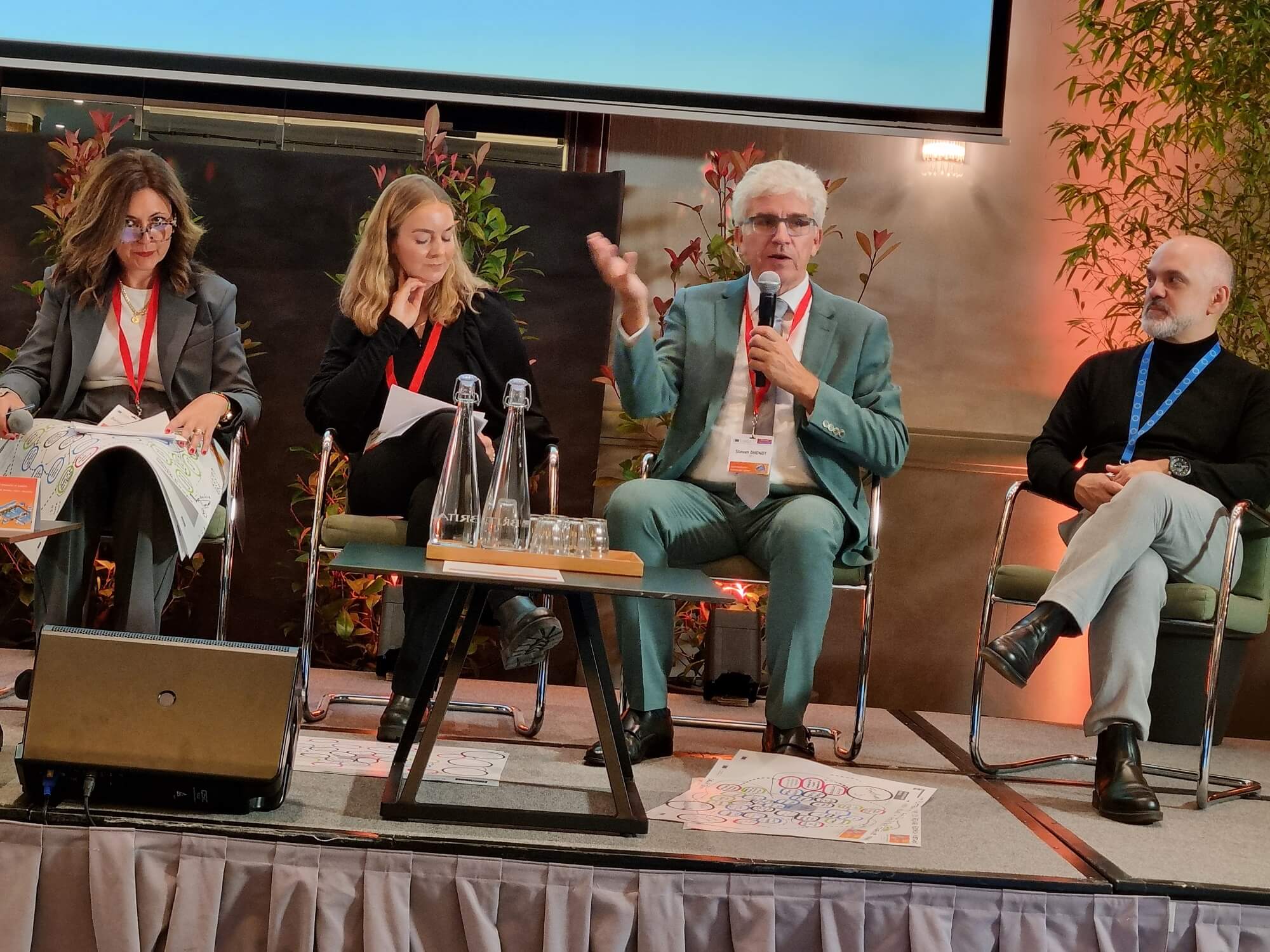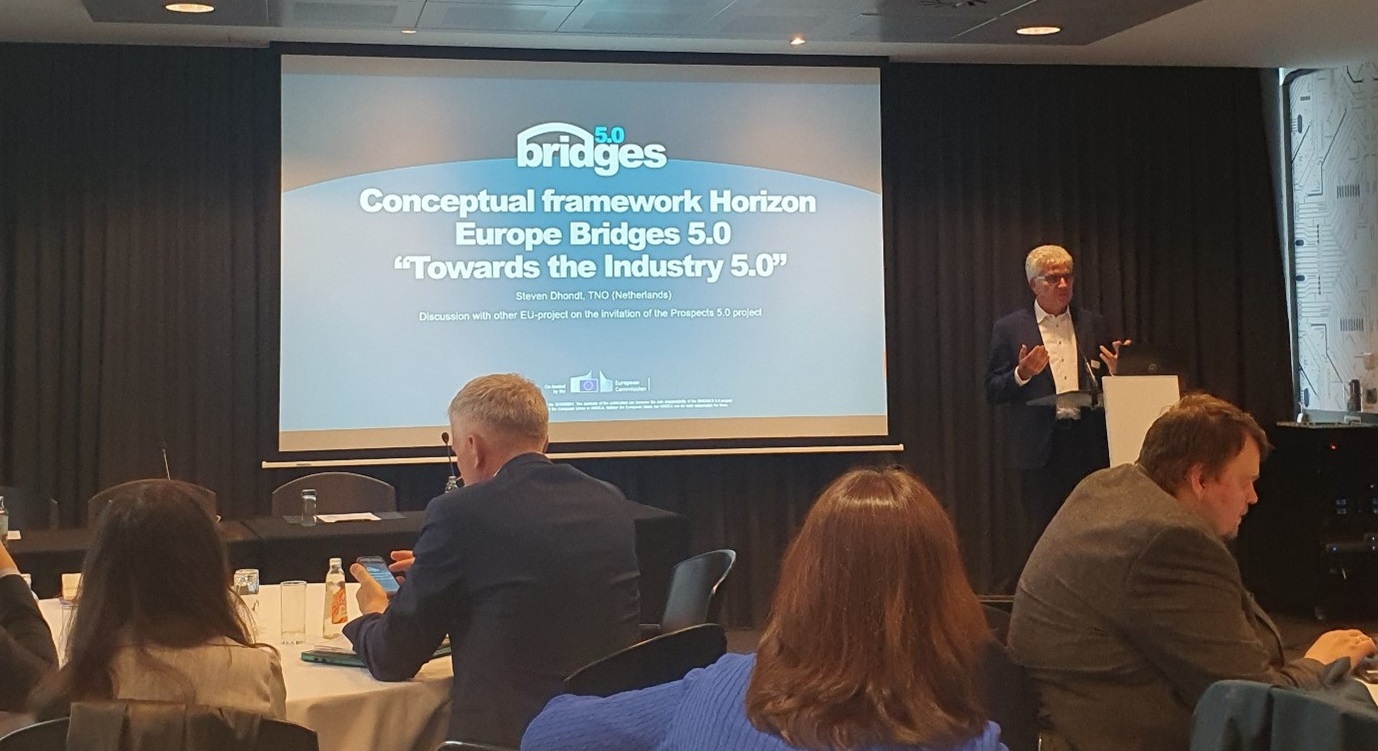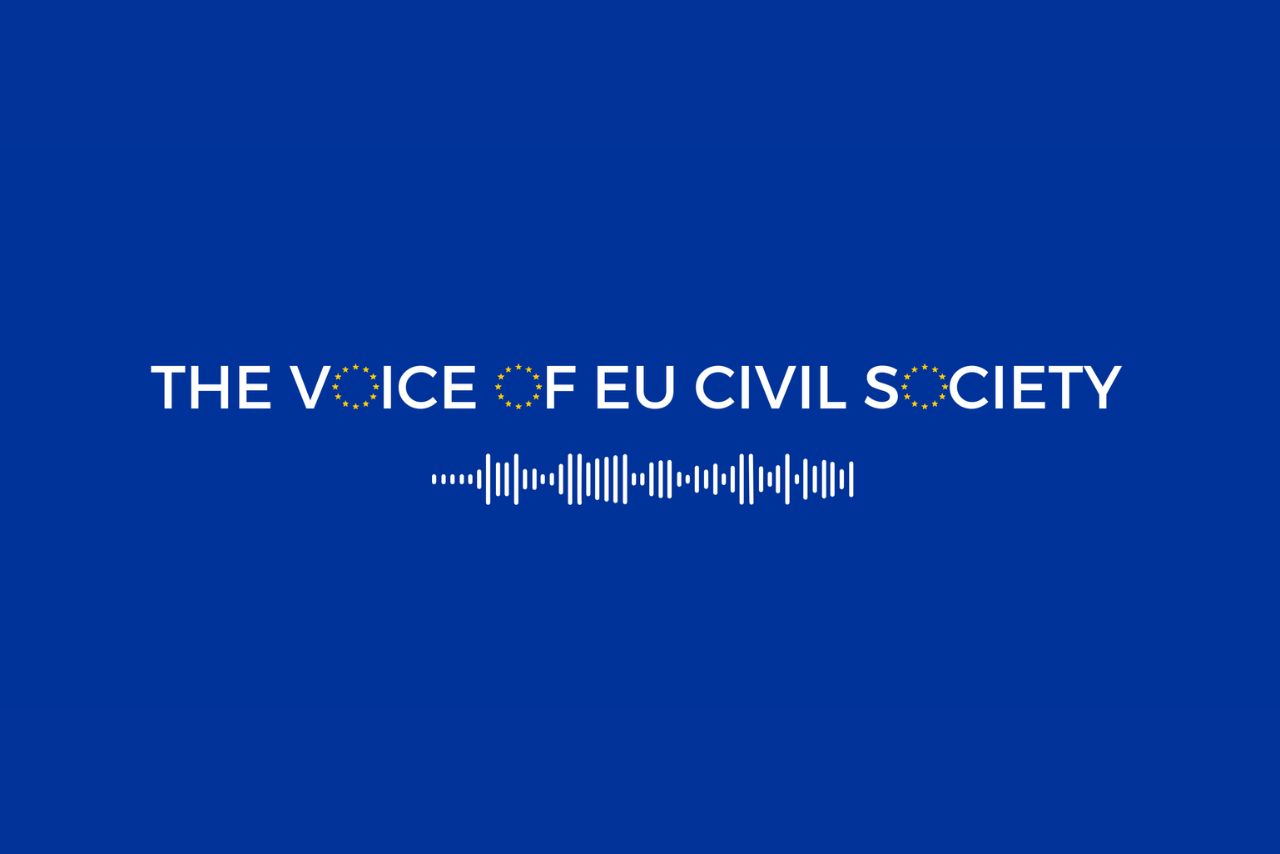
Welcome to Bridges 5.0!
Bridges 5.0 is an exciting new project funded under the European Commission’s Horizon Programme, and over the next four years we’ll be examining how Industry 5.0 can lead to better outcomes for employees, the environment, business competitiveness, and society as a whole.
Context
European industry has embarked on a path of digital transformation. Whilst the concept of Industry 4.0 has been driven primarily by productivity and technological considerations, the last ten years have clearly demonstrated the need for wider perspectives to make digital transformation work.
Three changes are required.
Firstly, industrial companies do not exist in a vacuum – employees must also share in the resulting productivity gains. Yet employees also have responsibilities, not least to take control of their own skills development.
Secondly, industry itself must become greener and more circular. These changes also require new management and workforce skills.
Thirdly, investing in skills and finding new synergies between the interests of companies and their employees is a priority if industry is to become more resilient in the face of an increasingly volatile world.
Our society needs companies and employees to make these changes together. Industry 5.0 adds employees, the environment and resilience to the equation, an alternative future in which businesses recognise their role in building a prosperous and sustainable society based on new modes of production.
Five goals for a faster transformation
The challenge is to make the transformation to Industry 5.0 faster and better.
Companies need a new roadmap to achieve the best possible synergies between human potential and digital potential, whilst employees will need new skills because jobs will change significantly. Companies and their employees alike must learn to master new technologies, engage with work in a different way, and discover the new steps needed to achieve a greener and more circular economy.
Horizon Europe Bridges 5.0 has five goals:
- We will develop and deliver solutions, tools and recommendations to enable the necessary development of skills for Industry 5.0. We will achieve this by targeting management, workers, future talent and job seekers.
- For each target group, we will examine their specific role in making the industrial transformation more ‘socio-centric’ and ‘human-centric’.
- We will translate these skill requirements into new standards for knowledge (skills taxonomies), enabling the continuous changes in knowledge requirements to be monitored, and ultimately reducing existing skills gaps.
- From this skills transformation perspective, we will develop evidence-based approaches to change in education, the labour market and in companies.
- Outcomes will be co-created with several large industrial companies and SME networks, resulting in a digitally supported platform for all Industry 5.0 stakeholders.
To achieve these goals, we need to make several changes:
- For the target groups: enabling managers, job seekers, students and company employees to absorb new technological knowledge faster and more effectively (innovation adoption).
- At the company level: showing how to adapt business strategies to the new demands of the market, especially greening and sustainability. The question here is, what skills do they need to develop to make this happen?
- On the labour market: assimilating new ways of learning and training, building on the new networks that support this learning.
We will clarify the skills actually needed and how they can be developed to cope with the leap to the new technological context. This involves new technical disciplines such as digitisation, cyber security and key enabling technologies, as well as new ways of exercising responsibility and taking initiative. Workplace innovation will become central to business strategies grounded in human and socio-centric principles as well as performance and profit.
Results
As a starting point, we will use the new learning and training infrastructure as it is currently constructed both in European countries and at the European level. Based on a critical analysis of this infrastructure in practice, we will identify what needs to be renewed and rethought. In doing so, we will assimilate our collective knowledge of effective learning and training interventions, and test it at various European locations.
The lessons from these experiments will be combined within a new Industry 5.0 Platform. At the outset, the platform will focus on two crucial actors in this industrial transformation: large companies and SME networks. In the platform, we will develop a new form of cooperation focused on skills and their transformation to meet the requirements of Industry 5.0. The platform will provide information about that transformation and about which interventions are most effective. Digital tools will ensure that the information is continuously updated, both retrospectively and prospectively.
Collaboration between existing and emerging Industry 4.0 [and 5.0] networks across Europe will form the crucial underpinning of this new platform, providing the necessary input for its construction.
We will underpin the transformation process in skills by identifying and adopting new indicators that align with current European Commission proposals. Continuous information gathering about the evolution of jobs and resulting skills requirements will guide the actions of participants in the Industry 5.0 platform.
Related articles
October 18, 2024
September 16, 2024
September 16, 2024








